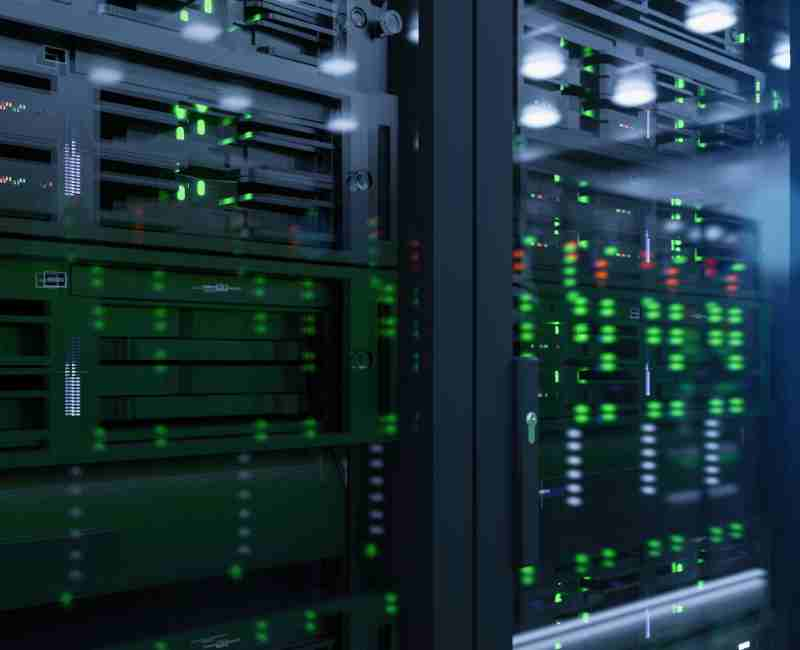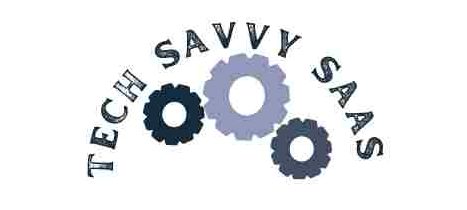The internet has become an integral part of our daily lives, but its convenience comes at a cost. Traditional web hosting practices have a substantial environmental impact, contributing to significant energy consumption and carbon emissions. As the number of websites and online services continues to grow, it becomes imperative to address the sustainability of our digital infrastructure.
The importance of opting for eco-friendly web hosting solutions cannot be overstated. As businesses and individuals increasingly establish their online presence, the environmental consequences of their choices become more pronounced. By making conscious decisions about where we host our websites, we have the power to contribute to a more sustainable online presence.
Relevance of Combating Climate Change
- Relevance of Combating Climate Change
- Reducing Energy Consumption and Embracing a Sustainable Future
- Key Terms
- Understanding the Basics of Green Web Hosting
- Mention of Key Terms
- Assessing Green Web Hosting Plans
- Comparison of Sustainability Features in Hosting Plans
- Energy-Efficient Practices Adopted by Hosting Providers
- Renewable Energy Certificates, Sustainable Practices, and Pricing in Hosting Plans
- Evaluation Criteria for Selecting an Eco-Friendly Hosting Provider
- Tips for Reducing the Environmental Impact of Your Site
- Mention of Key Terms
- Key Takeaways
Choosing eco-friendly web hosting is directly linked to the broader goal of combating climate change. The energy-intensive nature of traditional hosting methods contributes to the release of greenhouse gases, exacerbating the global climate crisis. The need for sustainable alternatives is not just a matter of preference; it’s a critical step in addressing the environmental challenges we face.

Reducing Energy Consumption and Embracing a Sustainable Future
One of the key motivations for adopting green web hosting practices is the commitment to reduce energy consumption. By choosing providers that prioritize energy efficiency and utilize renewable energy sources, we can collectively work towards a more sustainable future. This shift goes beyond mere energy-saving; it is a conscious effort to embrace practices that have a positive impact on the environment.
Key Terms
- Web hosting is a service that allows organizations and individuals to post a website or web page onto the Internet.
- Energy Consumption: The amount of energy used by a system, in this context, refers to the energy used by data centers for hosting websites.
- Carbon Footprint: The total amount of greenhouse gases, specifically carbon dioxide, that are emitted directly or indirectly by an individual, organization, event, or product.
- Combat Climate Change: Taking actions to mitigate or prevent the negative effects of climate change on the environment.
- Energy-saving: practices or technologies that aim to reduce energy consumption.
Understanding the Basics of Green Web Hosting
Green web hosting is an environmentally conscious approach to hosting websites that aims to minimize the ecological impact of online activities. Unlike traditional hosting, which often relies on energy-intensive practices, green hosting prioritizes sustainability and reduces the carbon footprint associated with hosting websites.
Comparison between Traditional Hosting and Green Hosting
Environmental Impact
- Traditional hosting typically relies on non-renewable energy sources and may contribute significantly to carbon emissions.
- Green hosting utilizes renewable energy sources and employs energy-efficient infrastructure to minimize its environmental impact.
Sustainability Practices
- Traditional hosting may lack specific sustainability practices, leading to higher resource consumption and environmental harm.
- Green Hosting: Implements eco-friendly practices, such as using renewable energy certificates and energy-efficient hardware, to ensure a more sustainable hosting solution.
Data Centers: Energy Sources and Role in Hosting Services
Energy Sources
- Data centers in traditional hosting are often powered by fossil fuels, contributing to a higher carbon footprint.
- Green Hosting Data Centers: Prioritize the use of renewable energy sources like wind, solar, or hydroelectric power, reducing the environmental impact.
Role in Hosting Services
- Traditional Hosting Data Centers: Focus primarily on providing hosting services without a specific emphasis on sustainability.
- Green Hosting Data Centers: Integrate sustainability into their core services, considering the environmental impact of every aspect of hosting.
Relevance of Renewable Energy Sources, Eco-Friendly Practices, and Infrastructure in Web Hosting
Renewable Energy Sources
- Critical in Green Hosting: The use of renewable energy sources, such as wind or solar, helps reduce dependence on non-renewable fossil fuels.
Eco-Friendly Practices
- Integral to Green Hosting: Practices like carbon offset programs and efficient waste management contribute to a more eco-friendly hosting solution.
Infrastructure
- Energy-Efficient Infrastructure: Green hosting providers invest in hardware and facilities designed for optimal energy efficiency, minimizing their overall environmental impact.
Mention of Key Terms
- Providers: companies offering web hosting services, varying in their commitment to sustainability.
- Emissions: The release of greenhouse gases into the atmosphere is a significant concern in traditional hosting.
- Power centers are facilities that generate and distribute energy, impacting the overall sustainability of hosting services.
- Sources: The origin of energy used, with a focus on transitioning to renewable sources.
- Services: The range of hosting solutions, with green hosting prioritizing eco-friendly options.
- Renewable Energy Sources: Energy derived from sustainable and replenishable sources is crucial to reducing the environmental impact.
- Energy-Efficient Infrastructure: Hardware and facilities designed to minimize energy consumption while maintaining optimal performance.
Assessing Green Web Hosting Plans
Types of Green Hosting Plans
- Shared Green Hosting: Ideal for small websites, blogs, and startups. It involves multiple websites sharing resources on a single server.
- VPS (Virtual Private Server) Green Hosting: Offers more control and resources than shared hosting and is suitable for medium-sized businesses.
- Dedicated Green Hosting: Provides a dedicated server for large businesses and high-traffic websites, offering maximum control and resources.
- Cloud-Based Green Hosting: Utilizes cloud resources, ensuring scalability and reliability for varying traffic levels.
Comparison of Sustainability Features in Hosting Plans
Energy Source
- Traditional hosting often relies on electricity generated from fossil fuels.
- Green hosting uses renewable energy sources like wind or solar energy.
carbon footprint
- Traditional Hosting: Larger carbon footprint due to higher energy consumption.
- Green Hosting: Aims to minimize or offset carbon emissions.
Energy Efficiency
- Traditional Hosting: May not prioritize energy-efficient hardware.
- Green hosting often incorporates energy-efficient hardware and technologies.
Energy-Efficient Practices Adopted by Hosting Providers
Use of Renewable Energy
- Green hosts either power their data centers with renewable energy or purchase renewable energy certificates to offset their energy usage.
Implementation of Energy-Saving Technologies
- Adoption of energy-efficient servers and cooling systems to reduce electricity consumption.
Sustainable Business Practices
- Practices like paperless billing and recycling programs to further reduce the environmental impact.
Renewable Energy Certificates, Sustainable Practices, and Pricing in Hosting Plans
Renewable Energy Certificates (RECs)
- RECs certify that a hosting provider has funded the generation of renewable energy, helping to support and grow green energy initiatives.
Sustainable Practices
- Inclusion of features like carbon offset programs and the use of energy-efficient hardware.
Pricing
- Comparison of cost-effectiveness between green and traditional hosting plans.
- Understanding the long-term financial benefits of sustainable hosting solutions.
Mention of Key Terms
- Plans: The variety of hosting options offered by green web hosting companies.
- Companies: providers of green hosting services, each with unique features and pricing.
- Features: Specific aspects of hosting plans that contribute to their sustainability.
- Sustainability: The overall goal is to reduce the environmental impact of web hosting.
- Practices: The methods and strategies used by hosting providers to achieve eco-friendly operations.
- Renewable Energy Certificates: Certificates purchased by hosting companies to offset their energy use with renewable sources.
- Pricing: The cost associated with various green web hosting plans, considering both upfront and long-term expenses.
More Post: The Green Revolution in the Automotive Industry
More Post: Energy-Efficient Cooling Solutions for Data Centers
Evaluation Criteria for Selecting an Eco-Friendly Hosting Provider
Energy Sources
- Renewable Energy Usage: Assess whether the hosting provider utilizes renewable energy sources for their data centers.
- Renewable Energy Certificates (RECs): Check if the provider invests in RECs to offset their carbon footprint.
Energy-Efficient Infrastructure
- Hardware Efficiency: Evaluate the provider’s commitment to using energy-efficient hardware and technologies.
- Cooling Systems: Consider the efficiency of the data center’s cooling systems in reducing overall energy consumption.
Sustainable Practices
- Carbon Offset Programs: Check if the hosting provider participates in programs to offset their carbon emissions.
- Waste Management: Assess the provider’s waste management practices and commitment to reducing environmental impact.
Reputable Green Hosting Companies
GreenGeeks
- Renewable Energy Usage: GreenGeeks is known for powering its data centers with 300% wind energy, making them a leader in renewable hosting.
- Eco-Friendly Practices: They offer a range of eco-friendly features, including a tree-planting initiative for every hosting account.
DreamHost
- Carbon Neutral: DreamHost is a carbon-neutral hosting provider, investing in renewable energy projects to offset their carbon emissions.
- Sustainable Infrastructure: They focus on energy-efficient hardware and support sustainable initiatives.
HostGator
- RECs Usage: HostGator invests in RECs to offset their energy consumption and support renewable energy projects.
- Environmentally responsible: They implement various measures for energy efficiency and responsible waste management.
iPage
- Green Certificates: iPage is recognized for its purchase of Renewable Energy Certificates, contributing to a more sustainable energy grid.
- Energy-Efficient Technologies: They utilize energy-efficient technologies in their data centers.
- In-Depth Analysis of DreamHost, GreenGeeks, HostGator, and iPage
DreamHost
- Pros:
- Carbon-neutral hosting.
- Commitment to open-source software.
- Cons:
- Slightly higher pricing compared to some competitors.
GreenGeeks
- Pros:
- 300% renewable energy usage.
- Free domain registration and migration.
- Cons:
- Limited data center locations compared to some competitors.
HostGator
- Pros:
- Use of RECs for sustainability.
- 45-day money-back guarantee.
- Cons:
- Some users report inconsistent customer support.
iPage
- Pros:
- Purchase of renewable energy certificates.
- Affordable hosting plans.
- Cons:
- Limited scalability for high-traffic websites.
Discussion on the Environmental Impact and Social Responsibility of Web Hosts
- Carbon Neutrality: Evaluate whether the hosting provider is committed to being carbon neutral.
- Community Engagement: Assess the provider’s involvement in community and environmental initiatives.
- Transparency: Look for transparency in disclosing their environmental practices and goals.
Mention of Key Terms
- Provider: The company offering green hosting services.
- Host: The entity responsible for hosting and maintaining websites on their servers.
- DreamHost, GreenGeeks, HostGator, and iPage: Specific green hosting companies are under consideration.
- Social Responsibility: The ethical and sustainable practices adopted by a hosting provider towards the community and the environment.
Choosing the right green hosting provider requires a thorough evaluation of their eco-friendly practices, energy sources, and overall commitment to sustainability. By considering these factors, you can make an informed decision that aligns with your values and contributes to a greener online presence.
Understanding the Carbon Footprint of Websites
Websites, while intangible in nature, have a substantial carbon footprint associated with their creation and maintenance. This footprint is primarily attributed to the energy consumption of data centers hosting the website, the production of hardware, and the energy used by end-users accessing the site.
Calculation Methods for Measuring the Environmental Impact
Energy Consumption
- Server Energy Usage: Assess the energy consumption of the servers hosting your website.
- User Device Energy Usage: Consider the energy used by visitors’ devices to access and interact with your site.
Hardware Production
- Lifecycle Analysis: Evaluate the environmental impact of manufacturing and disposing of the hardware used in hosting.
Tips for Reducing the Environmental Impact of Your Site
Optimize Images and Multimedia
- Compress images and videos to reduce their file size, minimizing data transfer and improving loading times.
Use Content Delivery Networks (CDNs)
- Distribute your website’s static content across multiple servers globally, reducing the load on a single server and optimizing energy consumption.
Efficient Coding Practices
- Optimize your website’s code to reduce server load and improve overall performance, leading to lower energy consumption.
Choose an Eco-Friendly Hosting Provider
- Select a hosting provider that emphasizes sustainability, uses renewable energy, and implements energy-efficient practices.
Explanation of the Relevance of Renewable Energy Sources, Carbon Offset Programs, and Resource Consumption in Website Development
Renewable Energy Sources
- Hosting Providers: Choose providers that run their data centers on renewable energy sources such as wind, solar, or hydroelectric power.
Carbon Offset Programs
- Compensating Emissions: Some hosting providers participate in carbon offset programs to neutralize the environmental impact of their operations.
Resource Consumption
- Efficient Resource Use: Adopt practices that minimize the consumption of resources, such as server space, bandwidth, and data storage.
Mention of Key Terms
- Websites are digital platforms accessible via the internet, each with its own unique environmental impact.
- Environment: The surroundings in which a website operates are influenced by its energy consumption and resource use.
- Data: the information processed and stored by websites, contributing to their environmental footprint.
- Consumption: the use of resources, both in the development and usage phases of a website.
- Site: A specific location on the internet, representing a digital entity with its own environmental considerations.
- Carbon Offset Programs: Initiatives to compensate for carbon emissions, helping to mitigate the overall environmental impact.
- Resource Consumption: The use of various resources, including energy and hardware, in the process of website development and maintenance.
Best Practices for Sustainable Website Development and Maintenance
Efficient Coding
- Minimize Code: Remove unnecessary code to reduce server load and enhance website performance.
- Optimize Images and Multimedia: compress images and videos to lower data transfer and decrease energy consumption.
Content Delivery Networks (CDNs)
- Distribute Content Globally: Utilize CDNs to distribute static content across multiple servers globally, reducing the environmental impact of data transfer.
Energy-Efficient Hosting
- Choose Eco-Friendly Hosts: Opt for hosting providers that prioritize energy efficiency and operate on renewable energy sources.
- Introduction to Initiatives for Reducing the Carbon Footprint of Websites
Carbon Offset Programs
- Offset Emissions: Engage in carbon offset programs to neutralize the carbon footprint associated with website operation.
Renewable Energy Credits
- Purchase Renewable Energy Certificates (RECs): Support renewable energy projects by investing in RECs to offset the energy consumption of your website.
- Support for green initiatives by hosting providers
Provider’s Environmental Commitment
- Choose Environmentally Responsible Hosts: Select hosting providers who are actively involved in green initiatives and committed to reducing their overall environmental impact.
Carbon-Neutral Hosting
- Providers with Carbon-Neutral Practices: Opt for hosting companies that strive for carbon neutrality, investing in sustainability projects to offset their carbon emissions.
- Explanation of the Importance of Energy Efficiency, Carbon Offset, and Renewable Energy Certifications in Sustainable Practices
Energy Efficiency
- Reduced Environmental Impact: Energy-efficient practices directly contribute to lower resource consumption and, subsequently, a reduced environmental impact.
Carbon Offset
- Neutralizing Environmental Impact: Carbon offset programs compensate for emissions, ensuring that the overall environmental impact remains neutral.
Renewable Energy Certifications
- Supporting Renewable Energy Projects: Investing in RECs directly supports the development and growth of renewable energy projects.
Mention of Key Terms
- Initiatives: actions and strategies employed to promote sustainability and reduce the environmental impact of websites.
- Efficiency is the optimization of processes and resources to achieve maximum output with minimal input.
- Support: backing and endorsement, particularly in the context of hosting providers supporting green initiatives.
- Carbon offset is the act of compensating for carbon emissions by participating in programs that fund environmental projects.
- Renewable Energy Certifications: Certificates validating the use and support of renewable energy sources in offsetting energy consumption.
Key Takeaways
- Understanding the environmental impact of traditional web hosting versus green web hosting.
- The significance of renewable energy sources and eco-friendly practices in reducing carbon footprints.
- Assessment of green hosting plans and their sustainability features.
- Criteria for selecting an eco-friendly hosting provider like DreamHost, GreenGeeks, HostGator, and iPage.
- The carbon footprint of websites and methods to measure and reduce their environmental impact.
- The importance of renewable energy certifications and carbon offset programs in web development.
- Best practices for sustainable website development include efficient coding, the use of CDNs, and selecting energy-efficient hosting providers.
Emphasis on the Importance of Making Informed Choices for Eco-Friendly Web Hosting
- Choosing a green web host is a crucial step towards reducing the environmental impact of your online presence.
- Evaluating hosting providers based on their commitment to renewable energy, carbon offset initiatives, and sustainable practices is key.
Reminder of the Relevance of Renewable Energy, Carbon Offset, and a Sustainable Future in Web Hosting
- The shift to green web hosting is a pivotal component in the movement towards a more sustainable internet.
- By opting for hosting services that prioritize renewable energy and carbon offset programs, businesses and individuals can actively contribute to combating climate change.
- The choice of a green web host not only reduces your website’s carbon footprint but also aligns your online activities with the broader goals of energy conservation and a sustainable future.
More Post: Carbon Footprint of E-Waste
More Post: How Tech Giants are Going Environmentally Friendly (Green Data Centers)
Frequently Asked Questions (FAQ)
What is green web hosting?
Green web hosting is an environmentally friendly approach to hosting websites that prioritizes sustainability. It involves utilizing renewable energy sources, implementing energy-efficient practices, and supporting initiatives to offset carbon emissions.
How does green web hosting differ from traditional hosting?
Traditional hosting often relies on non-renewable energy sources, contributing to a higher carbon footprint. In contrast, green web hosting utilizes renewable energy, has energy-efficient infrastructure, and supports initiatives like carbon offset programs.
Which hosting providers offer green web hosting?
Some notable green web hosting providers include DreamHost, GreenGeeks, HostGator, and iPage. These providers prioritize sustainability through renewable energy usage, carbon offset initiatives, and eco-friendly practices.
What are the pros and cons of green web hosting?
| Pros of Green Web Hosting | Cons of Green Web Hosting |
|---|---|
| Environmental sustainability | May have slightly higher upfront costs |
| Support for renewable energy initiatives | Limited data center locations in some cases |
| Potential energy cost savings over time | Limited scalability for high-traffic websites |
Is there a 30-day money-back guarantee for green hosting plans?
Yes, many green hosting providers offer a 30-day money-back guarantee. This allows users to try out the services and, if unsatisfied, get a full refund within the specified period.
Are backups included in green hosting plans?
Yes, most green hosting plans include regular backups as part of their service. It ensures that your website data is secure and can be restored in case of any unforeseen events.
Conclusion
In conclusion, the environmental impact of traditional hosting is a growing concern. Choosing green web hosting is a meaningful step towards a more sustainable online presence. By opting for providers like DreamHost, GreenGeeks, HostGator, and iPage, individuals and businesses can contribute to the reduction of carbon footprints and support renewable energy initiatives.
We encourage everyone to take part in building a more sustainable online ecosystem. Your choice of hosting provider matters, not just for your website’s performance but for the health of the planet. Let’s collectively combat climate change, adopt green energy practices, and work towards a more sustainable future. Make the switch to green web hosting today for a positive environmental contribution!






